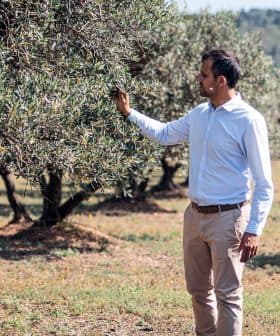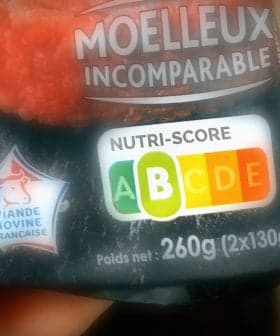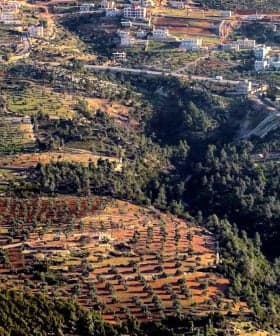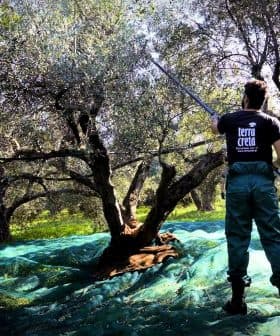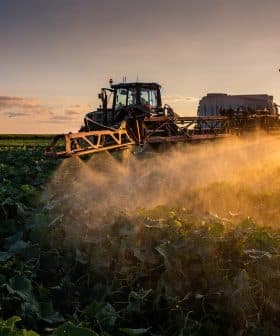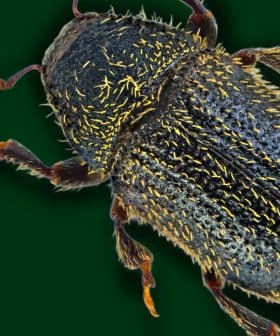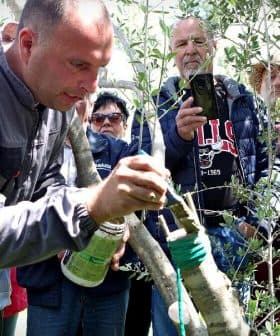Concerns About Dimethoate Ban Among French Olive Growers
Following a ban on the use of the insecticide dimethoate in France, French olive growers are concerned about the risk of damage to olive trees by the olive fruit fly, and increasing production costs.
 An olive grove in Provence, France (OOT File Photo).
An olive grove in Provence, France (OOT File Photo).French olive growers are concerned about the ban on dimethoate insecticide in France, fearing damage from the olive fruit fly and increased production costs. The European Food Safety Authority conducted a risk assessment study on dimethoate, concluding that more data is needed to determine consumer health risks, leading to uncertainty among farmers and potential price increases for consumers.
Following a ban on the use of the insecticide dimethoate in France, French olive growers are concerned about the risk of damage to olive trees by the olive fruit fly, and increasing production costs.
We can’t increase our prices, because if prices go up further, the average consumer will not buy our oil.
In February, the French ministry of agriculture announced a ban on the use of dimethoate due to health risks, a measure that has also been taken by the governments of Spain and Italy. After France called for an EU-wide ban of the insecticide, the European Commission requested the European Food Safety Authority (EFSA) to conduct a risk assessment study on dimethoate. The results of the EFSA study published on April 12 concluded that, based on the limited information available, “the data are not sufficient to clearly exclude a consumer health risk,” and called for a comprehensive review of maximum residue levels.
Dimethoate is used on a variety of crops, including olives, to combat the Drosophila Suzukii fruit fly. Since the ban, attention has been focussed on the effects on the cherry crop. On April 21, the ministry of agriculture announced an embargo on the sale in France of cherries from countries where the use of the insecticide is permitted.
French farmers insist that alternatives to dimethoate are not viable or too expensive, and fear that their livelihoods are threatened while consumers face higher prices.

Drosophila suzukii (Georgofili World)
Following concerns voiced by cherry growers, French olive growers are also worried about the effects of the ban on their own crop and fear that it could only be a matter of weeks before their trees could be ravaged by the olive fruit fly. In response to the ban on the sale of cherries from countries still using dimethoate, they have asked the ministry of agriculture to include in the ban the sale of foreign olive oil and olives treated with the insecticide.
Representing the union of olive growers of Roussillon, its president Gennaro de Benedittis, told France Bleu Radio that other products used to combat the fruit fly are much more expensive. As a result, the already large price difference between olive oil produced in France and in Spain will increase dramatically. “We can’t increase our prices, because if prices go up further, the average consumer will not buy our oil,” he concluded.


